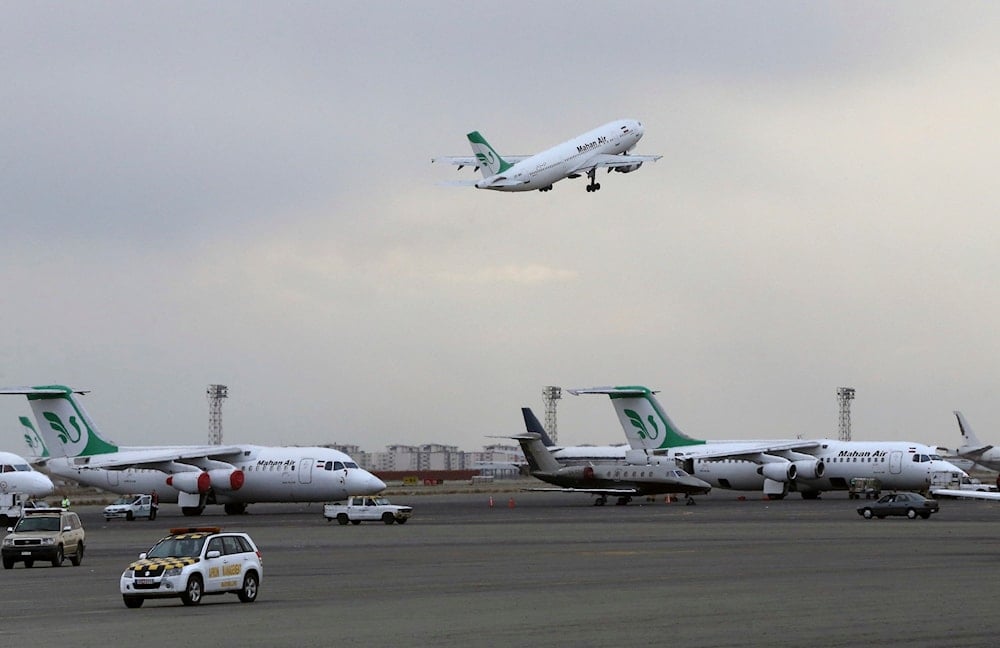Iran shuts down airspace over western, central regions
Iran has shut down airspace over its central and western regions to international transit flights, citing security investigations. Some flight suspensions extend until July 3.
-

A Mahan Air passenger plane takes off from Mehrabad Airport in Tehran, Iran, February 7, 2016. (AP)
Iran has shut down its airspace to transit flights across its central and western regions, according to a statement made on Wednesday by Majid Akhavan, the spokesman for the Iranian Ministry of Roads and Urban Development.
"After the decision was made by the coordinating committee of the Civil Aviation Organization and investigations related to ensuring the country's security, in the current situation, the airspace over the central and western parts of Iran is again closed to international transit flights," Akhavan stated, according to broadcaster SNN.
Akhavan also noted that flights over eastern Iran remain open for domestic, international, and transit traffic, while the suspension of domestic and international flights across the northern and southern regions, as well as several areas in the west, has been extended until 14:00 local time (10:30 GMT) on Thursday, July 3.
This comes as Iran recovers from the illegal war waged on it by "Israel" and the United States, in a bid to dismantle its nuclear program, all while derailing nuclear talks.
During her weekly press briefing, government spokesperson Fatemeh Mohajerani stated that Iran is still mulling whether to resume nuclear talks with the United States, highlighting that a date has not been set, and a restart may not happen soon.
Iranian Foreign Minister Abbas Araghchi emphasized that Tehran will refuse to resume nuclear negotiations with Washington unless the United States halts its military threats, presenting this demand as an essential condition for reestablishing diplomatic dialogue.
In an interview with CBS, Araghchi explained that any decision to return to the negotiating table hinges on guarantees that Washington will not once again use the talks as a cover for military action, and while he maintained a firm position on this point, he also underlined that Iran remains willing to pursue diplomatic solutions by affirming that the path to dialogue remains open.

 2 Min Read
2 Min Read










